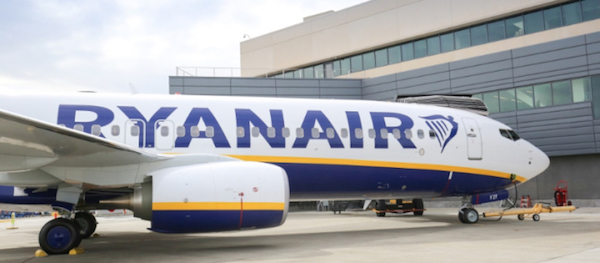Ryanair’s cabin crew unions threaten Europe-wide summer strikes

Unions representing Ryanair’s cabin crew across Europe are set to meet on May 28, 2018, in Madrid, Spain, to discuss possible industrial action against the low-cost carrier this summer. Five unions have already issued a June 30, 2018, deadline for the airline to adopt national employment laws for all their employees. They will reportedly be discussing measures to take if Ryanair fails to comply with their demands. But will the airline bend under pressure?
In a meeting on April 24, 2018, in Lisbon, Portugal, union representatives from Spain, Portugal, Belgium and Italy agreed on a June 30, 2018, deadline for Ryanair to comply with their demands, or face major strikes across Europe this summer. Their primary demand being that the airline respects national legislation where cabin crew are based and applies the same work conditions for all employees.
In a joint statement, the unions said, “If Ryanair fails to comply with these terms, the undersigned unions will initiate all the statutory and legal procedures to call a coordinated industrial action, including the use of strike action, during the summer of 2018.” According to A21, the dates for the strikes will be released at the beginning of July and the strikes will probably take place between July and August of 2018, the peak of summer time travel.
The (un)necessary strikes
Ryanair’s Portuguese cabin crew, represented by the SNPVAC, already staged a three-day strike early in April 2018, at the four Portuguese Ryanair bases in Lisbon, Porto, Faro and Ponta Delgada over what it says is the airline’s failure to recognize Portuguese labor rights.
The SNPVAC accuses the carrier of below-par labor conditions, particularly of using its Irish jurisdiction to ignore basic parenthood rights and not allow doctor-approved sick days, as well as disciplinary processes and threats for not reaching in-flight sales objectives, EuroNews reported at the time.
One of the union’s goals for the strike was to involve the Portuguese government in the dispute. Looking into Ryanair’s terms of employment, Labor Minister Jose Vieira da Silva has said that while most Portuguese crews’ contracts were signed under Irish jurisdiction, the EU Treaty of Rome still guarantees worker rights under local laws.
In 2017, it was revealed that Ryanair’s cabin crew were being paid only $4.99 (£3.75) an hour, and made to work up to five hours’ of unpaid overtime a day. Moreover, the airline’s work conditions suggest that flight attendants only earn money when the plane is in the air, which means that all groundwork like check-ins goes unpaid, The Sun reports.
According to Reuters, Ryanair maintains that staff working conditions are comparable to competitors, describing the three-day strike in Portugal as “unnecessary and unjustified”. The company also accused Portuguese union members from competitor airlines such as TAP and easyJet of organizing the strike to disrupt its operations.
However, the SNPVAC has remained defiant and is set to ensure the union strike action goes Europe-wide. “If Ryanair does not change its attitude, the only alternative we have is to work on, is taking the Portuguese example and replicating it with a Europe-wide strike,“ said union leader, Fernando Gandra. “After this current strike, we will sit down at the table with invited European unions where this will be the only issue discussed,” he was quoted as saying by local media.
During the three-day strike in Portugal that ended on April 4, 2018, Ryanair reportedly used volunteers and foreign cabin crew members to cover the staff shortages as 91% of the Portuguese cabin crew joined in on the strike. Union leaders have thus reportedly decided to carry out simultaneous strikes in their respective countries to prevent Ryanair from sending personnel from other bases.
The European Association of Cabin Crew (EurECCA) condemned the airline’s use of volunteers and foreign cabin crew during the Portuguese strike. At the time, Christoph Drescher, the secretary-general of EurECCA, declared his “full support” for staff behind the strike action. “All the Ryanair crews, in the nine countries where we are represented, are in solidarity with the Portuguese crew with this strike action,” said Drescher, stressing the need for the carrier to apply national and European legislation.
Ryanair recognized trade unions for the first time in its 30-year history in December 2017, in order to avoid mass Christmas strikes. The airline’s CEO Michael O’Leary has also said that the airline was prepared for smaller localized actions in 2018. But a Europe-wide industrial strike would potentially cripple the airline. Could that be the reason why Ryanair on May 25, 2018, launched 150 of its most popular holiday routes for summer of… 2019?
Source – AeroTime News Hub

